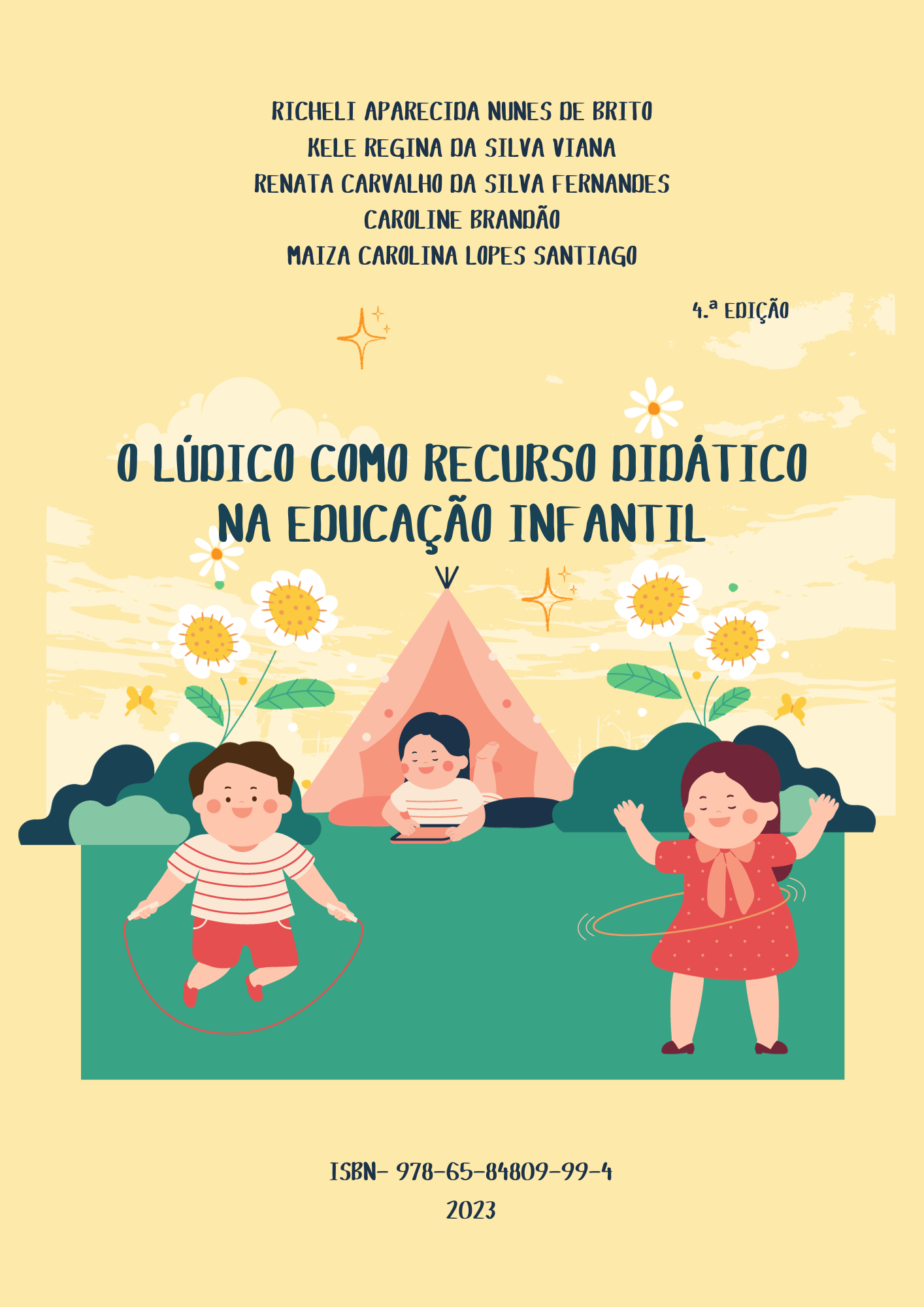THE PLAYFUL AS A DIDACTIC RESOURCE IN EARLY CHILDHOOD EDUCATION
4a Edição
Keywords:
Ludic. Didactic resource. Child educationAbstract
PRESENTATION
This book is the result of a bibliographical research that aims to subsidize the teaching practice of early childhood education teachers, as there is a notorious lack of practices that are of interest to the ludic at this level of education where many schools prioritize the formal teaching of academic knowledge in reading, mathematics and written without worrying about the ludicity that permeates the children's universe.
The book emphasizes the importance of games, toys and games that permeate the children's world, and emphasizes that playing is a decisive characteristic of childhood. It is relevant because it raises the importance of playing for children's learning and draws the attention of teachers to the same importance as a conceptual reference for early childhood education, in their pedagogical practices. Finally, the research concluded that ludicity helps to improve the teaching process, every child has the right to play, through this activity children can balance the tensions generated in their cultural world and build their personal brand and personality. Playfulness contributes to the motor, social, emotional, affective and cognitive development of children.
Games and games are part of the lives of children from different cultures. A review of the literature on the subject shows that games and games are extremely important for the cognitive, emotional, social, affective and cultural development of children.
Based on this hypothesis, the main objective of this brief study is, fundamentally, to be used as a conceptual reference for all those who wish to carry out research and studies related to the topics discussed here, and to further support the improvement of teachers' teaching practices in activity in early childhood education.
Analyzing and discussing the importance of games in early childhood education from the perspective of playful learning is a challenging research that allows us to reflect and deeply understand the importance and meaning of early childhood education.
At this level of education, many schools tend to formally teach the academic knowledge of reading, counting and writing without worrying about the playful nature of penetrating the children's world, which in turn constitutes their audience.
The authors.
Downloads

Downloads
Published
How to Cite
License
Atribuição CC BY
